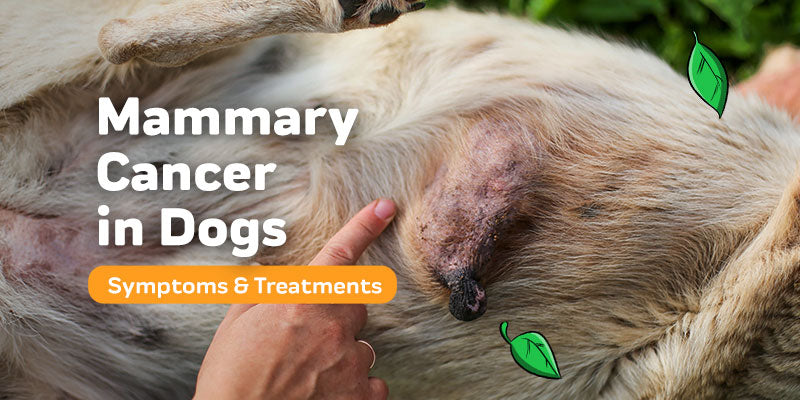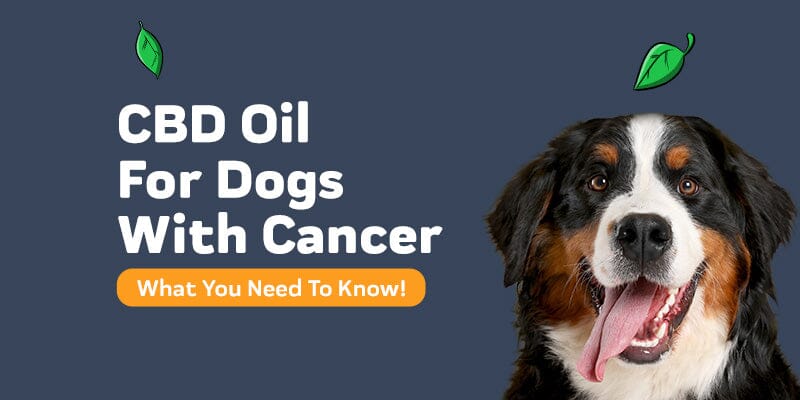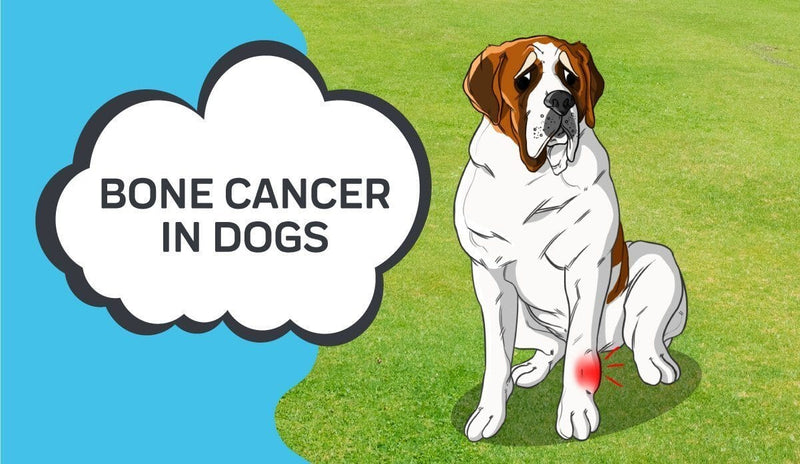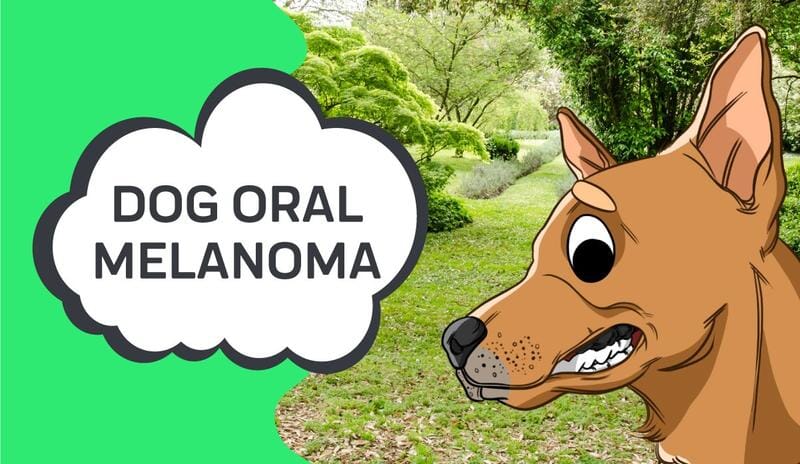- Why Has My Pet Developed Mammary Cancer?
- Mammary Cancer Symptoms in Dogs
- What Is The Life Expectancy of a Canine That Has Mammary Cancer?
- How Much Does Mammary Tumor in Dog Surgery Cost?
- Available Treatments for Mammary Cancer
- Mammary Cancer in Dogs and CBD
- CBD Oil: What is it?
- Difference between Marijuana and Hemp
- CBD Oil: Why Buy it Your Cat or Dog?
- CBD Oil: Why Buy it Your Cat or Dog?
- Where to Purchase Dog CBD Oil
CBD is being investigated all over the world for many uses. However at this time, as the manufacturer of CBD products, we are not allowed to discuss that subject publicly nor we are not allowed to imply that CBD can be used for any specific treatment. CBD may help support the healthy function of a dog's mammary glands.
If you see any bumps or lumps on your dog's mammary glands, it may be extremely concerning. The positive news is that almost 50% of all lumps that are discovered in this region of a dog’s anatomy are benign. Nonetheless, if you happen to see any odd swellings on your dog, it always is advisable to take him to the veterinary provider for a check-up. As with cancers, the sooner the problem is diagnosed, the better the mammary tumor dog prognosis will probably be.
If you’re worried about some bumps you’ve discovered on your pup’s mammary glands, or your pet already has been diagnosed with mammary cancer you ought to learn everything possible about this disease. Below we list all of the major facts that you will need to know concerning mammary cancer in dogs. In addition, I have listed some details about how CBD has displayed excellent results to assist your dog in coping with mammary cancer.
Even though the early studies into the advantageous effects of CBD for canines that have cancer has been extremely promising, the studies still are ongoing and results to date are just preliminary. But there is a lot of anecdotal proof that would seem to support these earlier findings.

Why Has My Pet Developed Mammary Cancer?
The reasons why a canine is going to develop mammary cancer aren’t completely understood. It’s oftentimes a mixture of factors that are going to all contribute to the onset of this disease.
The primary trigger for mammary cancer is thought to be the spikes in the hormone estrogen. It happens as the canine is in heat.
That is why spaying a female canine before her first heat cycle, which typically happens at around 6 months of age, virtually is going to eliminate the probability of the canine developing this disease.
The risk of developing this type of cancer increases after their first heat cycle to the point that, after 2 years, spaying doesn’t decrease the risk by anywhere close to the same extent.
Mammary Cancer Symptoms in Dogs
Earlier stage dog mammary tumors may be detected by palpitating their mammary glands. The tumors are going to feel like tiny pebbles underneath the skin. As the tumors develop, they are going to grow, and they might become red or purple in color or they might have a flesh tone. They also can be hard or soft to the touch and they might become ulcerated.
The main mammary cancer in dogs' symptoms is the appearance of lumps inside the mammary glands. Usually, mammary tumors in dogs happen in the teats towards the back of the dog.
Other breast cancer symptoms in dogs include indications of pain as the mammary glands are touched. Abnormal secretions oozing from the nipples, and lymph nodes swelling in the groin or underneath the armpits of the dog are additional symptoms.
If the disease has spread, the dog might display difficulty breathing, signs of lameness, as well as additional general cancer signs that include appetite loss, energy loss, vomiting and nausea.
The disease might manifest itself as one or multiple tumors. Around 50% of all dog mammary cancer cases have several tumors. If the tumor is movable under the skin, that typically suggests that the growth is benign. If the growth seems to be fixed to the body or the skin, that would imply that the growth is malignant.
What Is The Life Expectancy of a Canine That Has Mammary Cancer?
The dog mammary cancer life expectancy may considerably vary depending upon an array of factors, which includes the tumor’s size, the kind of tumor, how deep the tumor has gotten into the tissue, as well as if the disease has spread to other body parts.
If the tumor is diagnosed early on and it may be removed surgically, the dog mammary tumor life expectancy is extremely good.
Dog mammary cancer or breast cancer is an extremely aggressive cancer. Only half of the lumps discovered in the mammary glands of dogs are diagnosed as being malignant. Out of these, only half are discovered to have spread to other body parts.
If a tumor that hasn’t spread is removed surgically, the treatment may be curative. But, the mammary tumors in dog's life expectancy for each individual canine diagnosed may considerably vary from two months to multiple years.
How Much Does Mammary Tumor in Dog Surgery Cost?
While no one enjoys putting a cost on their pup’s life, the dog mammary tumor removal cost for canines may be fairly high.
In the instance of dog mammary cancer, the treatment cost will significantly vary, depending upon the extent of cancer. Major surgery that removes a tumor which has penetrated deep inside the body might cost around $1,500. Follow up chemotherapy may cost anywhere from $200 to $2,000, depending upon the length of time the treatment is required. Radiotherapy prices may range from $2,000 to $6,000.
There also are going to be extra expenses, like the initial visitations to the veterinarian for a diagnosis, as well as other medicines that fight infections and alleviate pain.
Available Treatments for Mammary Cancer

The surgical tumor removal is the usual treatment method for dogs that have mammary cancer. Depending upon the kind of tumor, dog’s age, as well as whether the disease has spread, the surgeon might only remove the tumor.
If that tumor has spread and grown, the surgeon might need to remove the mammary glands, tumor, all surrounding tissue, and all affected lymph nodes.
If the tumor is especially invasive and it penetrated deeper inside the surrounding bone and tissue, it may become challenging to remove. In instances like those, the surgeon might choose to take out as much of the tumor as he can then follow up the operation with chemotherapy.
Radiation therapy follow-up also may be utilized to decrease the risk of a recurrence, as well as prevent localized spreading.
Usually, vets are going to suggest the spaying of un-spayed canines at the time of the mammary cancer operation. It’s because it decreases the odds of cancer coming back and it also improves the rate of survival.
Though, as is the instance with preventative spaying, the effectiveness of this is going to diminish with the age of the dog.
Vets may suggest for dogs to take specific supplements which have been proven to decrease the risk of female breast cancer. Those supplements involve -3-beta-glucan, which comes from yeast, as well as Inositol hexaphosphate, which comes from rice.
Mammary Cancer in Dogs and CBD
Cannabidiol (CBD) is a natural compound that comes from hemp, as well as cannabis plants.
The biological system in which CBD affects is the exact same system that’s involved in many other bodily processes. Those processes involve pain, metabolism, as well as inflammation. As CBD stimulates this system—referred to as the endocannabinoid system, it’ll assist in managing symptoms like inflammation and pain. CBD also has been discovered to decrease symptoms such as loss of appetite, vomiting, as well as nausea.
In a single study which was performed by Italy’s University of Camerino Department of Experimental Medicine, scientists discovered that CBD seemed to inhibit brain tumor growth.
Even though pet owners shouldn’t try to use CBD for dogs with mammary tumors as a natural treatment alternative to the treatments recommended by a veterinarian. Most dog owners have given CBD to their pets that have mammary cancer and have claimed beneficial effects.
In addition, it also may help relieve the side effects of treatments such as chemotherapy.
Let us get into more detail concerning purchasing CBD Oil for cats and dogs:
CBD oil for canines has been increasing in popularity recently because of its non-psychoactive properties and incredible health benefits. Dogs, cats, birds, horses, and all additional pets alike may greatly benefit from this newly studied supplement. Recent studies have uncovered that your pets’ equilibrium vastly improves in general once they’re introduced to CBD.
It is crucial for dog parents to understand how to use this newfound super herb as it may assist in managing many various health conditions their pet might have.
Below we discuss some of the critical areas regarding the use of CBD oil for canines that every dog owner ought to read about.
CBD is being investigated all over the world for many uses. However at this time, as the manufacturer of CBD products, we are not allowed to discuss that subject publicly nor we are not allowed to imply that CBD can be used for any specific treatment.
CBD Oil: What is it?
CBD oil is a natural-occurring compound that is found inside the industrial hemp plant. It’s the most abundant non-psychoactive cannabinoid discovered in cannabis and is being studied because it carries some incredible health benefits.
Over time, CBD oil has been obtainable for individuals to use yet currently it is available for dogs and cats to use, as well! CBD has been utilized to assist in fighting anxiety, reducing inflammation and pain, helping manage nausea, may suppress seizures, suppressing the growth of tumors, treating allergies, as well as aiding to improve health and wellness in general.
Note that hemp and marijuana aren’t the same. Both have CBD yet one additionally has high quantities of THC. Therefore, what is the difference between them? Read on to find out…
Difference between Marijuana and Hemp
There are two primary species of plant of the cannabis genus plant which are broadly utilized in the world today – marijuana and hemp.
Both plants naturally generated over eighty different chemical compounds typically called cannabinoids. Those cannabinoids are each unique and may have various effects on your brain or body. The cannabinoid content varies as hemp usually has a lower cannabinoid concentration and marijuana usually has a higher cannabinoid concentration.
Hemp (species one) is the tall bamboo-like species that is originally from Asia which is currently grown worldwide. The stalks are utilized to make textiles, paper, clothing, as well as rope.
The seeds are utilized to make lubricants, paint, cosmetics, and food. Hemp’s cannabinoid content is lower, which results in lower THC ƒˇ levels (Legally, THC levels must be less than 0.3 percent).
As hemp is legal to ship, import, and sell in the United States, it’ll make it a highly sought-after CBD source – the non-psychoactive cannabinoid discovered in hemp. Cannabidiol (CBD) carries a multitude of health benefits yet won’t cause you to get “high”.
Marijuana (species two) is hemp’s bushier, shorter cousin. It usually is grown for its highly concentrated resin glands and high yielding flowers. Both resin glands and flowers are robust in THC – the psychoactive portion of the plant that causes you to get “high”.
It’s what makes marijuana such a highly sought-after candidate among the crowds to ingest and smoke. Also, THC carries several more health benefits compared to CBD yet by consuming THC you’ll experience a “high”.
CBD Oil: Why Buy it Your Cat or Dog?
We’ve already indicated that CBD is critical for your cat or dog because it can offer various medical benefits. It may be classified into two areas. We’re able to use CBD oil for dogs to battle chronic diseases and it’s also able to battle acute diseases in dogs and cats.
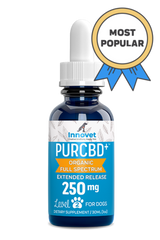
One such chronic disease is arthritis-- a severe condition which affects lots of pets. Also, we have compromised immunity in canines, and additionally, stress responses in dogs.
Additionally, chronic conditions involve aggression, as well as the digestive problems that canines are susceptible to. All of those conditions may be efficiently managed by routine CBD use.
According to studies, CBD possesses anti-inflammatory effects that may assist in improving some acute and chronic diseases. It’s accomplished through the CBD’s capability of targeting the specific receptor sites inside the central nervous system and brain of dogs.
CBD also is vital because it can help with anxiety, pain, aggression, neurological disorders, appetite stimulation in dogs, healing skin inflammation, and reducing muscle spasms.
What Kinds of CBD Products Are Obtainable for Dogs and Cats?
CBD Pet Tinctures
Tinctures are available in tiny glass bottles that are filled with highly-concentrated CBD oil. Usually, the glass bottle will have a dropper that makes it convenient to administer the oil.
CBD Pet Capsules

The oil may be dropped in water, food, or right into your dog’s mouth. Tinctures are efficient for alleviating muscle pains, eliminating nausea, decreasing stress in dogs, and reducing the symptoms of chronic diseases. This delivery method is great for dog owners just getting started with using CBD for medical reasons.
Capsules are yet one other effective method of delivering CBD oil to your cat or dog. Capsules either can be hidden inside snacks or split open to be blended into your pet’s water or food.
CBD capsules easily are absorbed into the body after entering the digestive system. The natural molecules inside the CBD capsules help with faster absorption.
CBD Pet Treats
Treats are an excellent choice for dogs which have an issue taking tincture drops or pills. The treats already are infused in delectable treats which your dog will enjoy so there isn’t any need for blending or any other extra work.
CBD Pet Topicals
CBD Pet Topicals are used for cats and dogs who either are suffering from severe body and joint pains or skin allergies. They’re directly applied to the dog’s skin and provide healing by generating localized relief to your dog.
The topical only is for external use and thereby shouldn’t be swallowed. CBD is blended with carrier compounds which permit cannabinoids to quickly absorb into the skin.
Where to Purchase Dog CBD Oil
Wherever you purchase your CBD oil for canines just be certain that it’s a trustworthy source. With years of expertise, Innovet Pet Products has applied a variety of kinds of CBD oil for canines with a lengthy history of success. Our approach to generating natural cannabinoid medication is carefully determined.
At Innovet Pet Products, all of the products have natural ingredients, as well as special superfoods that are essential to your dog’s unique condition. Look no other place than Innovet Pet Products.
For more information please feel free to get in touch with Innovet Pet Products right away at!
Sources:
Small Animal Topics
Mammary Tumors in Dogs and Cats
Cannabidiol inhibits paclitaxel
Cannabidiol as potential anticancer drug

Sara Redding Ochoa, DVM was raised in north Louisiana. She graduated from LA Tech in 2011 with a degree in animal science. She then moved to Grenada West Indies for veterinary school. She completed her clinical year at Louisiana State University and graduated in 2015 from St. George’s University. Since veterinary school she has been working at a small animal and exotic veterinary clinic in east Texas, where she has experience treating all species that walk in the hospital. In her free time, she likes to travel with her husband Greg, bake yummy desserts and spend time with her 4-legged fur kids, a dog Ruby, a cat Oliver James “OJ”, a rabbit BamBam and a tortoise MonkeyMan.
Thanks for stopping by!
P.S. We Love You!
Sincerely,
The Innovet Team
Please do not ask for emergency or specific medical questions about your pets in the comments. Innovet Pet Products is unable to provide you with specific medical advice or counseling. A detailed physical exam, patient history, and an established veterinarian are required to provide specific medical advice. If you are worried that your pet requires emergency attention or if you have specific medical questions related to your pet’s current or chronic health conditions, please contact or visit your local/preferred veterinarian, an animal-specific poison control hotline, or your local emergency veterinary care center.
Please share your experiences and stories, your opinions and feedback about this blog, or what you've learned that you'd like to share with others.










